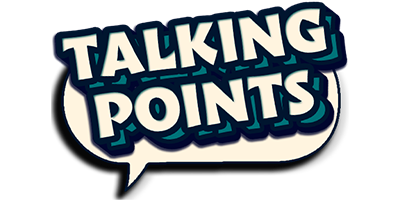Chrystia Freeland Releases Inflation Plan
On June 16th the Deputy Prime Minister and Minister of Finance, Chrystia Freeland, addressed the Empire Club in Toronto. In her speech she discussed the federal government’s plan to combat the rising inflation and her plan was…to do nothing! Now this might not be a bad thing. The plan Freeland announced was essentially a repeat of measures already accounted for in the 2022 federal budget, which we discussed here. Freeland discussed the five-part plan the federal government has in place which includes: Respecting the role of the Bank of Canada in lowering inflation, investing in workers, managing the national debt, creating good jobs, and funding the various programs in the already-released Affordability Plan.
This means the federal government will be investing in immigration, skills, child-care, and housing in order to expand the workforce and fill the shortage of skilled workers while also maintaining the reduced budget outlined earlier this year. The feds will also allow the Bank of Canada to continue its independent response to inflation. The Bank of Canada rose their benchmark interest rate to 1.5% earlier this month and indicated more hikes are on the way. The programs included in the Affordability Plan include:
Boosting the Canada Workers Benefit by $1.7 billion this year. Individual workers can now receive up to $1,395 a year in benefits, while a family can qualify for up to $2,403 annually. Those amounts would be boosted by $1,200 for individuals and $2,400 for families.
Increasing Old Age Security (OAS) by 10 per cent, providing up to $766 in new support in the first year starting in July for those 75 and older.
Providing a one-time Housing Affordability Payment of $500 for low-income Canadians.
Reducing the cost of child-care by an average of 50 per cent by year's end and bringing it to an average cost of $10 a day by 2025-26.
Providing free dental coverage for Canadians earning less than $90,000 a year, beginning with children under 12, in 2022.
Increasing benefits indexed to inflation, including OAS, the Guaranteed Income Supplement (GIS), the Canada Pension Plan, the Canada Child Benefit and the GST credit.
The federal government has taken some heat from the opposition parties for their response to inflation. Conservative MPs Dan Albas and Gerard Deltell criticized what they called the Liberals’ “tax and spend strategy” for eating away at Canadians’ earnings while also fueling inflation through more government spending. The NDP continued to place blame at the feet of corporations for taking advantage of higher prices and called for an excess profit tax on oil and gas companies that would return money to Canadians through a GST/HST tax credit and child benefit. The NDP also proposed an idea, supported by the Bloc, that would redirect a $2.6 billion tax credit included in the Liberal budget for companies that promise to build carbon capture and storage systems to double the GST rebate and add $500 to every Canada Child Benefit. However, the Conservatives and Liberals voted against it with Prime Minister Trudeau saying that the GST/HST rebates and CCB payments are already indexed to rise by annual rate of inflation.
The payments have been shown to be indexed to a rate of inflation of about 2.4%; significantly less than the current rate of 6.8%. The Liberal budget also planned for the $2.6 billion tax credit to be spread out over 5 years and so only $35 million is accounted for this fiscal year.
Freeland also compared Canada’s situation to that of other G7 countries, specifically the United States. She mentioned that Canada has recovered 117% of jobs lost during the pandemic which is more than the 96% recovered in the US and that Canada’s unemployment rate is down to 5.1. Freeland believes that she’s done enough for now and is hesitant to announce new measures because revealing tax cuts or new spending could stoke demand even higher. She also noted that the government is not closing any doors and is prepared to take additional steps should the current ones not be enough.
It does seem like the government is following its plan and is not interested in new spending. Allowing the Bank of Canada to raise interest rates will keep prices high but will force Canadians to reduce spending and thus lower demand. With international factors contributing to inflation alongside government spending, things like the pandemic, interruptions in global supply chains, and Russia’s invasion of Ukraine, the ability of the government to successfully combat inflation is limited. The government’s plan would probably be more well received if their communication improved and was a bit more straightforward. Announcing a plan to combat inflation and then repeating things that have already been announced will seem like a let down to the general public, even though it might still be the best plan. Hopefully this is the best plan. Cheers!

